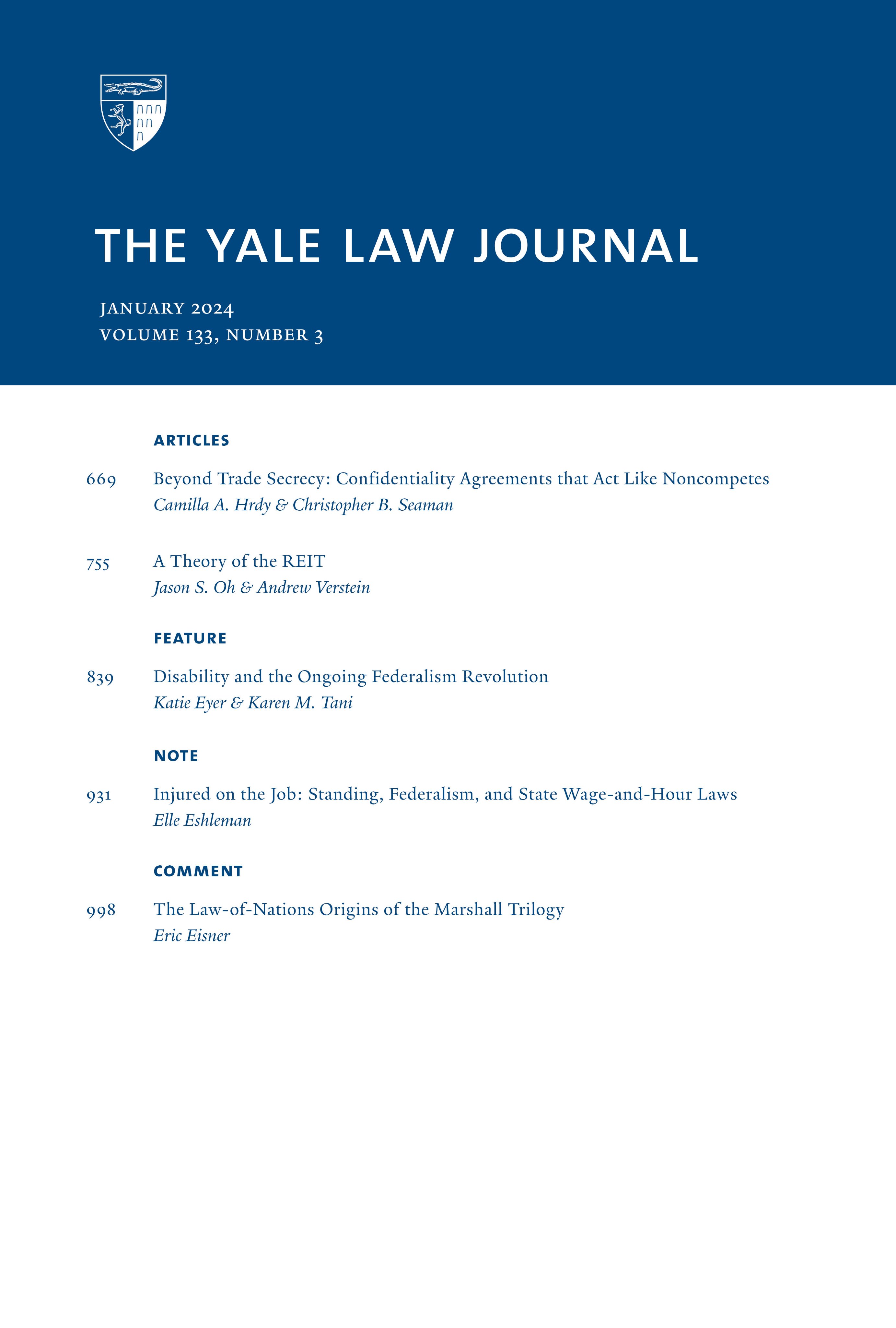Fair Notice About Fair Notice
IF 5.2
1区 社会学
Q1 LAW
引用次数: 1
Abstract
The rule of lenity instructs courts to resolve statutory ambiguity in the defendant’s favor. One goal of the rule is to ensure that defendants have fair notice of the scope of criminal prohibitions. While lenity has deep roots in the common law, a majority of state legislatures have passed statutes instructing courts not to follow the rule of lenity in criminal cases. Some state courts abide by the legislature’s lenity-displacing command; others explicitly disregard it; and most have come down somewhere in between — neither disclaiming the rule of lenity entirely nor employing it explicitly. But judges cannot have it both ways. If they try to construe laws to be consistent with the lenity canon’s notice-giving values while avoiding an outright clash with the state legislature, they undermine the very same values that they seek to preserve. After all, if the rule of lenity is meant (at least in part) to ensure that potential criminal defendants are put on notice about the illegality of their actions, then if the courts are not clear about the interpretive method they are using, criminal defendants risk being left in the dark not only about the meaning of a state’s substantive laws, but also about how the courts will decide how to decide what the law means. A rule of lenity whose application is uncertain may be just as problematic from a fair-notice perspective as having no rule of lenity at all.公平通知关于公平通知
宽大处理原则指示法院在有利于被告的情况下解决法律歧义。该规则的目标之一是确保被告对刑事禁令的范围有公平的通知。虽然宽大处理在普通法中有着深厚的根基,但大多数州的立法机构都通过了法规,指示法院在刑事案件中不要遵循宽大处理的规则。一些州法院遵守立法机关的量刑取代命令;其他人则明确地无视它;大多数人都在两者之间徘徊——既不是完全否认宽大原则,也不是明确地使用它。但法官不可能两全其美。如果他们试图将法律解释为与宽免准则的通知价值观相一致,同时避免与州立法机构发生直接冲突,他们就会破坏他们试图维护的价值观。毕竟,如果宽大处理的规则是为了(至少部分地)确保潜在的刑事被告注意到他们行为的非法性,那么如果法院不清楚他们正在使用的解释方法,刑事被告就有可能被蒙在鼓里,不仅不知道一个国家的实体法的含义,而且不知道法院将如何决定法律的含义。从公平通知的角度来看,适用不确定的宽大规则可能与根本没有宽大规则一样有问题。
本文章由计算机程序翻译,如有差异,请以英文原文为准。
求助全文
约1分钟内获得全文
求助全文
来源期刊

Yale Law Journal
LAW-
CiteScore
4.50
自引率
6.20%
发文量
0
期刊介绍:
The Yale Law Journal Online is the online companion to The Yale Law Journal. It replaces The Pocket Part, which was the first such companion to be published by a leading law review. YLJ Online will continue The Pocket Part"s mission of augmenting the scholarship printed in The Yale Law Journal by providing original Essays, legal commentaries, responses to articles printed in the Journal, podcast and iTunes University recordings of various pieces, and other works by both established and emerging academics and practitioners.
 求助内容:
求助内容: 应助结果提醒方式:
应助结果提醒方式:


